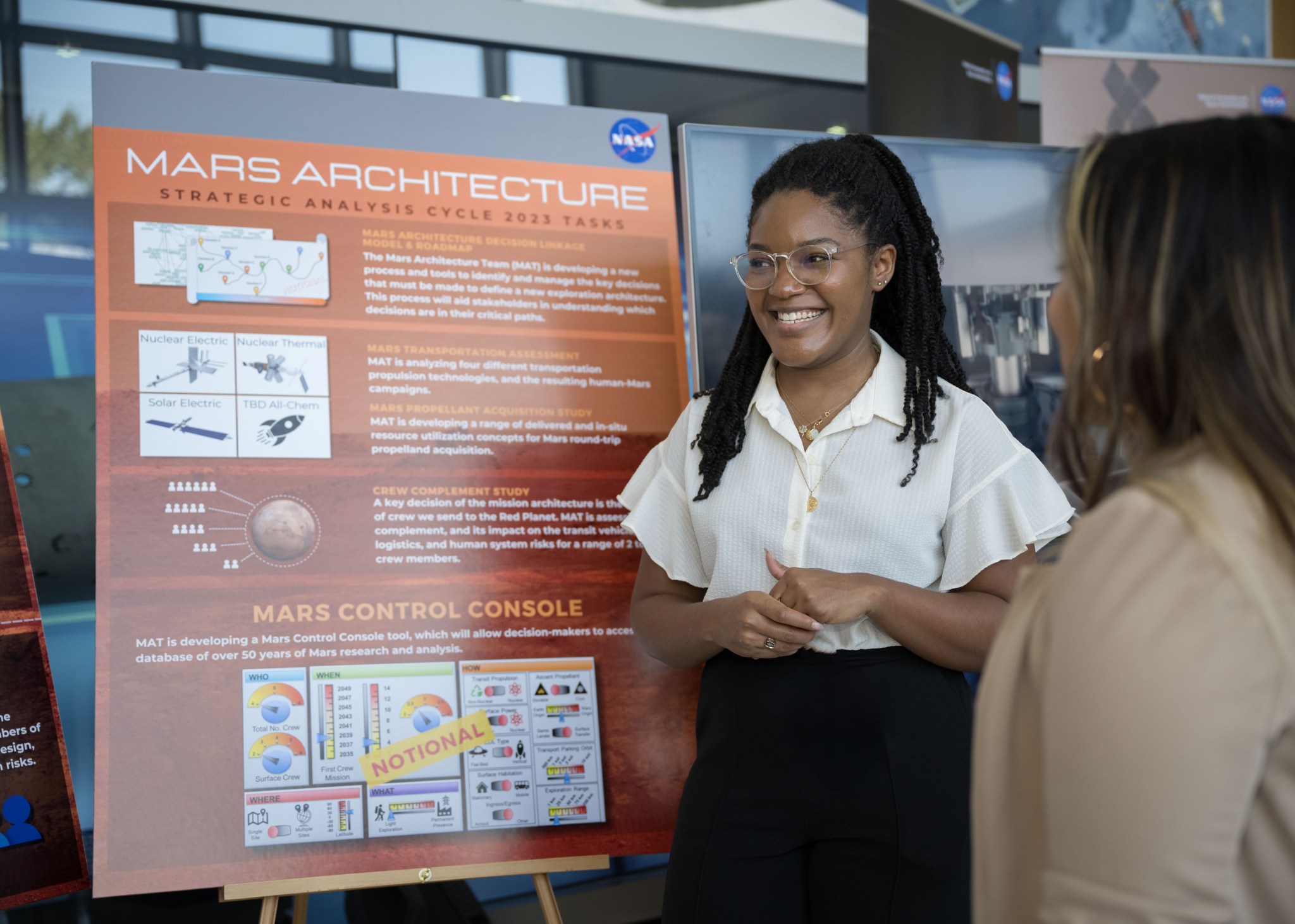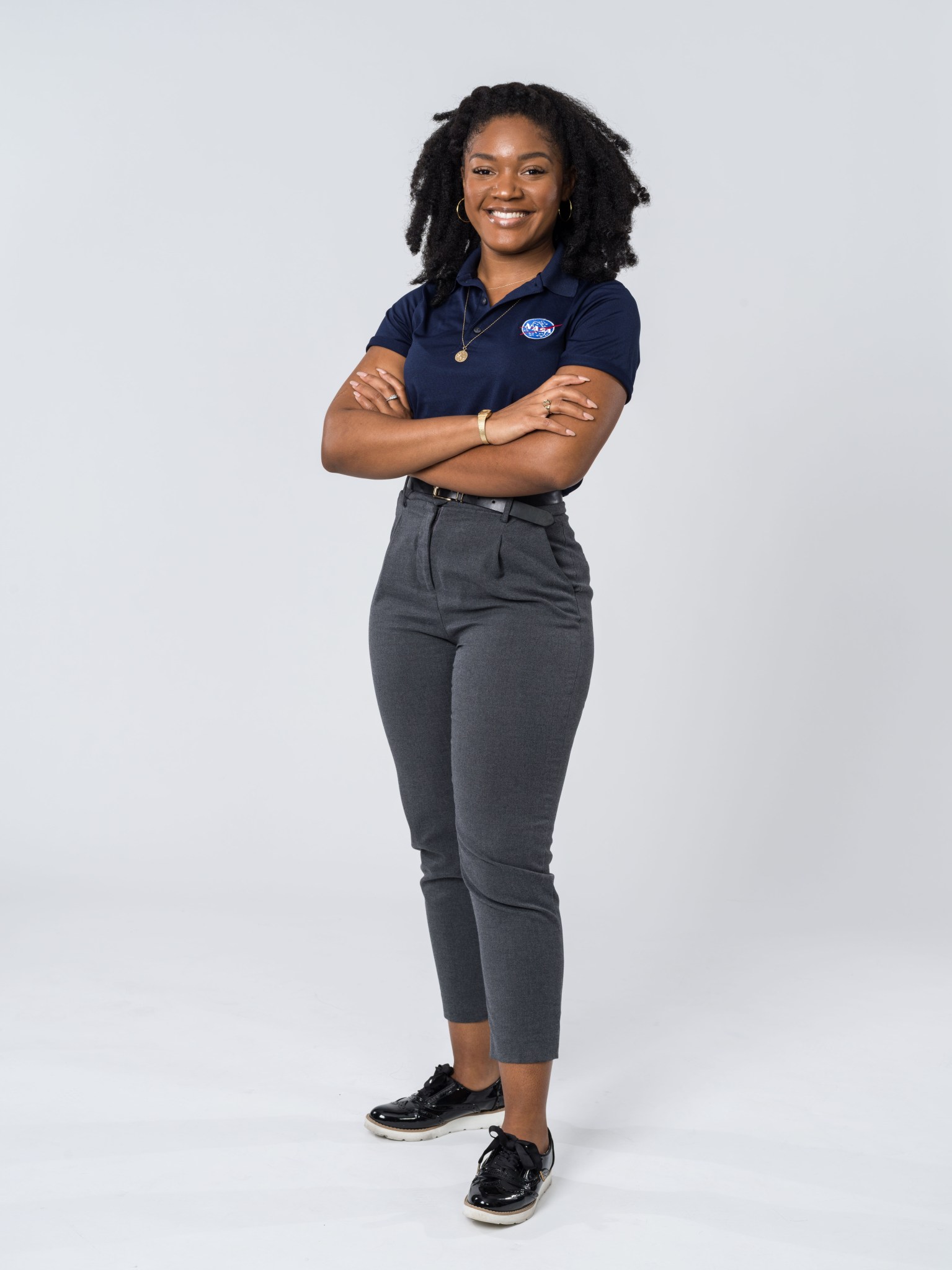As a member of the Mars Architecture Team, Clare Luckey is one of the people at the forefront of designing the first crewed mission to the Red Planet. Her current work involves helping to develop the vision for the initial segment of Mars exploration missions. She also has been named one of Forbes' 30 under 30 Class of 2024 in the Science category. Her commitment extends beyond the cosmos as she is deeply involved in community outreach, inspiring students to aim for the stars in space careers and encouraging diversity in STEM.
Starting her journey as an intern at Johnson's Center Operations in fall 2018, Luckey's career trajectory has been nothing short of meteoric. She began her career as a contractor at Barrios Technology, focusing on cargo integration for the International Space Station Program, then transitioned to a civil servant position in Center Operations by late 2020. Currently serving in the Exploration Mission Planning Office, Luckey's role is critical not just in Mars exploration but also in the Artemis missions, where she contributes to Lunar Mission Planning in the Mission Analysis and Integrated Assessments team.

Luckey's innovative thinking is especially crucial as she navigates the complexities of planning travel to Mars. Her ability to compare and adapt strategies from near-term missions like Artemis to the long-term objectives of Mars colonization highlights her unique insight and adaptability. "Mars missions are more open to change because they are far in the future," said Luckey. "We are still in the process of figuring out not only how to make decisions, but what decisions to make."
Her influence extends far beyond engineering. Luckey's engagement with global space leaders at the Space Symposium and her contributions as a panelist at the American Institute of Aeronautics and Astronautics Science and Technology Forum exemplify her as a thought leader in aerospace. She also participated in the Space Generation Advisory Council, a board that advises the United Nations on next-generation space exploration concepts. "All of these opportunities have given me different insights into the larger space industry and space economy," she said.

Reflecting on her journey, Luckey attributes her passion for space exploration to a middle school project, "Future Cities," where she and her friends designed a futuristic Mars city. The project ignited her imagination and inspired her to think critically and creatively about the future. "It's important to build the foundations of mathematics and science at a young age," she said. "I am really passionate about getting other people who look like me involved in the space industry."
Luckey's involvement with the National Society of Black Engineers and her efforts to mentor and help students with school projects gives her great joy. "NASA can invest in the next generation by building a sustainable pipeline alongside sustainable space architecture," she said. "You have to invest in communities and education so that kids grow up participating in a culmination of activities that make them want to be a part of NASA." She believes that persistence, passion, and creativity are the top qualities for someone to excel in the space exploration industry.
As a vocal advocate for diversity in the space industry, Luckey emphasizes the importance of community and mentorship within NASA and beyond. "I try to reach out to people and build that community because it is important," she said. "That's one of the things that keeps people coming to work – no matter where you work. It's not the work, it's the people that keep you coming back. I work with a lot of great people that have built that NASA community."

Luckey's advice to aspiring space explorers is, "Just try. Even when you don't think you're capable or don't think you know enough, you will learn as you go." She also encourages students to search out opportunities and get involved at a young age. "There's no wrong answer. Just do what you're interested in, put effort into it, and you'll end up where you want to go," she said.
Her favorite part about working at NASA is the outlandishness of it all, she said. "People at NASA are really trying to build the future. The work we do here is amazing and not to be overlooked." She is looking forward to the Artemis missions because this time is a completely new paradigm. "With Artemis, we're going to the Moon to stay and to build sustainable architecture," said Luckey. "We're going to push forward. I am really excited to see how it turns out, and the international collaboration will be amazing for us."
Her enthusiasm for the Artemis missions and the future of international space collaboration shines through her work, envisioning a new era of lunar exploration and beyond. "I am grateful to be here," she said. "The most important thing to me is to be humble and personable. I want to be someone that is approachable, helpful, and easy to learn from so that I can be a mentor to the next generation of students, in the same way that I had mentors."







